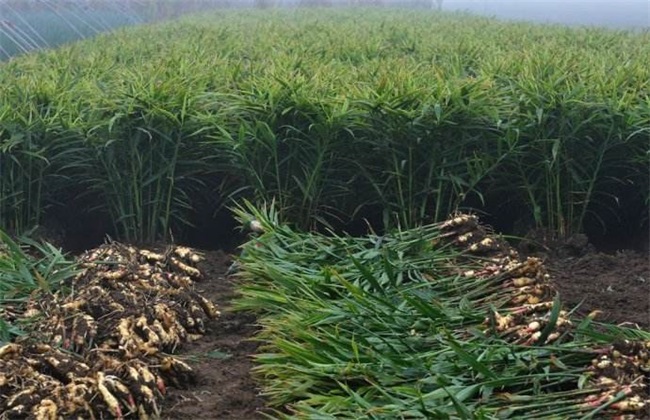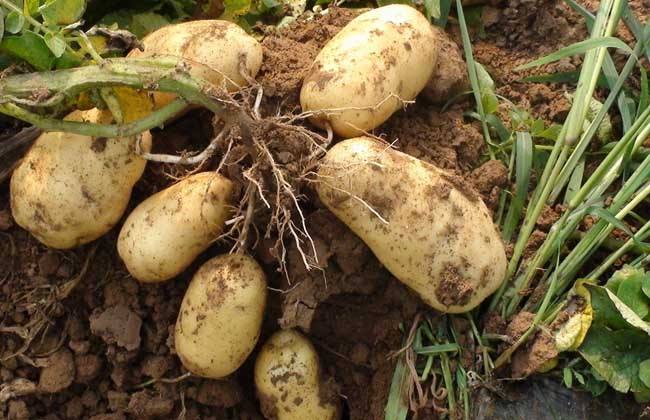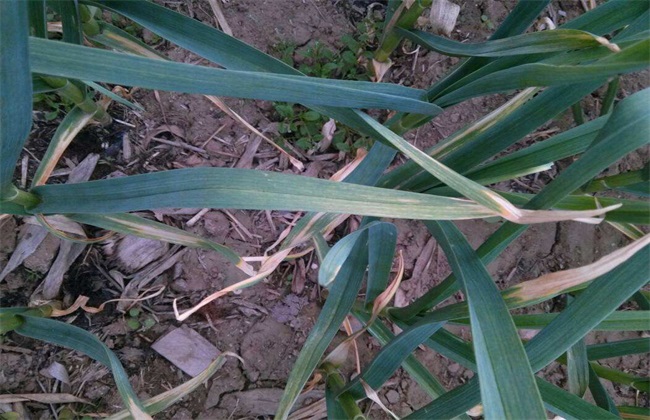What are the environmental requirements for ginger planting? Planting environmental conditions of ginger
Ginger is a commonly used side dish, which is mainly used for seasoning in our daily life. The nutritional value of ginger is very high, has a lot of efficacy, and is very beneficial to human health. Now the market demand for ginger is relatively large, so now the planting area of ginger is also getting larger and larger. When growing ginger, environmental conditions are very important. So the editor brings you the environmental conditions for growing ginger today. Let's take a look at it.

1. Temperature
Ginger is originally produced in the tropics of our country and likes to grow in warm areas. Therefore, the temperature requirement for the growth of ginger rhizome is relatively high, after sowing, the temperature should be controlled at about 16-18 degrees in order to ensure the smooth germination of ginger. In the temperature range of 20-25 degrees, the growth rate of ginger is accelerated, and the average monthly temperature should be controlled at about 25-28 degrees, which is the most favorable for the division of rhizomes. If the temperature is below 15 degrees, then the ginger will stop growing. Below 10 degrees, the ginger will be very perishable.
2. Lighting
Ginger in the growth process of light requirements in the medium intensity, ginger's ability to withstand strong light is relatively poor. Changes in the growth period will also have different requirements for light. For example, it is necessary to maintain dim light during the germination stage and provide medium light conditions for the seedling stage. But if the light is too strong, shading should be done well, otherwise it will have a great impact on the growth of the plant. After entering the peak growth period of ginger, there are more branches of ginger, and the plants will provide shade to each other, so the demand for light will also increase. Usually in the growing season of ginger, natural light can meet the lighting needs of ginger.
3. Moisture
Water is very important to the growth of ginger. The root distribution of ginger is not deep, and the ability of drought and waterlogging tolerance is very poor. The water content of the aboveground part of ginger is about 88%, and because the branches and leaves of ginger are relatively luxuriant and have a large amount of water evaporation, so when planting, it is necessary to do a good job of watering to ensure the normal growth of ginger. In the ginger seedling stage, the growth rate of ginger seedlings is relatively slow, the growth is also relatively small, and there is little demand for water. However, if the seedling stage is in a period of high temperature and drought, then it is necessary to maintain a certain amount of moisture. Otherwise, it will inhibit the growth of seedlings and reduce the yield.
4. Soil
Ginger is not very strict on soil and can grow normally in most soil types. The most suitable soil for ginger growth is topsoil with moderate sand, strong permeability and fast heating rate, which is very beneficial to the overall growth of seedlings. The lower soil should have good water and fertilizer conservation to promote the expansion of the rhizome. The strong acid and alkali resistance of ginger is not very strong, the PH value should be controlled at about 6, if the PH value exceeds the range of 5-8, then it will inhibit plant growth and reduce the yield and quality of ginger, so we should pay more attention to it.
The above is a brief introduction to the environmental conditions of ginger planting. That's all for today's introduction. This article is for reference only. I hope it can help you all.
Related
- Where is it suitable to grow horseradish in China? it is expected to see the middle altitude horseradish in Alishan.
- How to prevent tomato virus disease reasonably? (Control methods included)
- Many people like to plant towel gourd on the balcony. What are the main points of this method and management?
- What crops can chili peppers be mixed with?
- Fertilization techniques and matters needing attention in Tomato
- What are the grafting techniques for peach seedlings in spring?
- Harm and control methods of root swelling disease of Chinese cabbage
- What are the pests of sweet potatoes? How to prevent and cure it?
- Symptoms, causes and Control methods of navel Rot in Tomato
- The cause of "Cucumber rotten bibcock" in Farmers' planting Cucumber and its Control Plan



